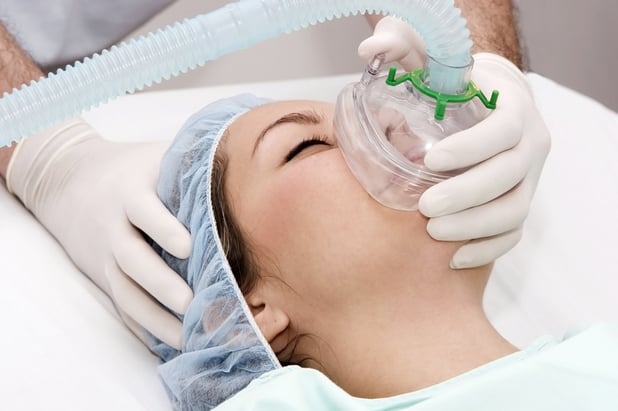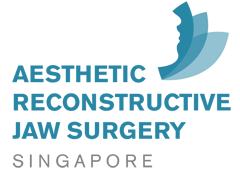Share this
Cosmetic Jaw Surgery Singapore -The day of the surgery
on November 13, 2015

Undergoing surgery is a daunting proposition. It calls for absolute faith in the surgeon and his team. For the surgical team, this is a responsibility we take seriously. While the surgeon is the main person, he cannot do a good job alone. Sometimes, I get requests from patients to do the surgery in a certain hospital or to use a particular anesthesiologist. I usually do not oblige not because I have loyalty to a particular hospital or anesthesiologist. To do the best work possible, I need to work in a familiar environment with familiar people. Communication is silent and not much need to be said as understanding has been established through multiple surgeries over the years. So, what happens on the day of surgery.
By now, all the preparatory work would have been done. The patient needs to be admitted to hospital two hours before the scheduled time of surgery. There is no need to be warded the night before. At admission, the patient will change into the hospital gown and the nursing staff will go through the checklist to make sure everything is in order. They will record vital signs such as blood pressure and temperature. They will also verify the identity of the patient, the surgery that is scheduled and the surgeon that is doing the surgery. If blood transfusion is anticipated, they will ensure that the blood is available. Half an hour before the surgery, they will transfer the patient from the ward to the operating room.
In the operating room reception, again, the patient’s identity, operation and surgeon are confirmed. The consent for surgery is verified to ensure that the patient knows what he is undergoing. After the nurses checked, the anesthesiologist will do his assessment, taking medical history and explaining the process of undergoing general anesthesia. In some cases, when I think that there might be anesthetic complications, I would have arranged for the patient to seen the anesthesiologist a few days prior to surgery. Once everything is found to be in order, the patient will be wheeled into the designated operating room.
At this point, I will usually reassure the patient that all is well and then the anesthesiologist will proceed with administering anesthesia. An intravenous infusion line will be set up usually on the arm. An anesthetic drug is injected and the patient will soon be asleep. Once the patient is asleep, a tube is passed through the nose and into the windpipe to maintain ventilation during the surgery, with a mixture of anesthetic gases and oxygen.
At this point, the patient will be fully asleep and surgery can commence. Throughout the surgery, the anesthesiologist will be monitoring the patient’s vital signs. Jaw surgery, particularly upper jaw surgery, is usually quite bloody. To minimize the lost of blood, the anesthesiologist lowers the blood pressure during the surgery. A lower blood pressure will result in less blood loss and also makes surgery easier. A single jaw surgery usually takes about 2.5 hours while a double jaw surgery about 4 hours. Sometimes, the surgical plan is more complex and the time taken will correspondingly be longer. Towards the end of the surgery, the anesthesiologist will slowly allow the blood pressure to rise to its normal level. When the surgery is completed, the anesthesia will be reversed and the patient will gradually regain consciousness. Thereafter, he will be wheeled out of the operating room to the recovery area for observation. Observation in the recovery area usually goes on for about half an hour and then the patient will be transferred back to the ward. Some surgeons put their patients in intensive care for one night but I have not found that to be necessary.
On average, most single jaw operations can be discharged the next day after the surgery while those who underwent double jaw surgery may stay for about two days in the hospital. During this period of hospital stay, a dietician will be consulted and he will advise the patient and his caregiver how to prepare a balanced soft diet. Blood transfusion is usually at this stage if it has not already started during the surgery. Pain control is given in the form of non-steroidal anti-inflammatories supplemented with pethidine when necessary. With this protocol, I have hardly come across any jaw surgery patient who complains of pain after surgery. The part that is most bothersome at this stage is the swelling of the face. Facial swelling after jaw surgery can be quite frightening. However, swelling is an integral part of the body’s repair process. Icing the face regularly in the first few days after surgery can help to minimize the swelling. While in the ward, intravenous steroid injections are also used to control the swelling.
Upon discharge, the patient will be given the necessary medications to be taken at home. I will usually review the patient at one week post-operation. At the review appointment, I will assess the wound healing, the stability of the bite and any other complications that may arise. Weekly reviews are done until the swelling subsides and the patient is ready to go back to the orthodontist for the final alignment of the teeth.
Share this
- Jaw Surgery (93)
- Dental Implants Singapore (90)
- Orthognathic Surgery (48)
- Replacing Missing Teeth (26)
- Missing Teeth Options (23)
- Underbite (23)
- Bone Grafting (21)
- Costs (18)
- Facial Aesthetics (18)
- Aesthetics (17)
- dental implants (16)
- corrective jaw surgery (15)
- BOTOX (11)
- Dermal Fillers (11)
- Wisdom teeth (10)
- Fixed Implant Dentures (8)
- Loose Dentures Singapore (6)
- Medisave (6)
- sleep apnea (6)
- Braces (5)
- Dental Pain (5)
- Dentures in Singapore (5)
- Loose Teeth (5)
- Tooth Extraction (5)
- jaw deformities (5)
- bimax (4)
- bone graft (4)
- maxillomandibular advancement (4)
- all-on-4 (3)
- bimaxillary protrusion (3)
- chin implant (3)
- facial asymmetry (3)
- full mouth dental implants (3)
- genioplasty (3)
- immediate implant (3)
- removal of an integrated dental implant (3)
- third molars (3)
- wisdom tooth surgery (3)
- My Dentures Don't Fit (2)
- VME (2)
- bone graft healing (2)
- distraction osteogenesis (2)
- medical tourism (2)
- obstructive sleep apnea (2)
- orthodontics (2)
- plastic surgery (2)
- CT guided dental implants (1)
- Double jaw surgery (1)
- Invisalign (1)
- Periodontal Disease (1)
- Permanent Dentures Singapore (1)
- before and after photos (1)
- facial trauma (1)
- fractured dental implant (1)
- oral appliance therapy (1)
- root canal treatment (1)
- veneers (1)
- vertical maxillary excess (1)
- September 2019 (2)
- July 2019 (2)
- May 2019 (2)
- August 2018 (1)
- October 2017 (1)
- September 2017 (2)
- August 2017 (1)
- June 2017 (2)
- May 2017 (4)
- April 2017 (1)
- March 2017 (1)
- February 2017 (3)
- January 2017 (3)
- December 2016 (1)
- November 2016 (2)
- October 2016 (4)
- September 2016 (9)
- August 2016 (5)
- July 2016 (11)
- June 2016 (14)
- May 2016 (6)
- April 2016 (2)
- March 2016 (1)
- January 2016 (7)
- December 2015 (10)
- November 2015 (4)
- October 2015 (9)
- September 2015 (7)
- August 2015 (1)
- July 2015 (6)
- June 2015 (3)
- May 2015 (7)
- April 2015 (5)
- March 2015 (8)
- January 2015 (5)
- December 2014 (7)
- November 2014 (7)
- October 2014 (6)
- September 2014 (8)
- August 2014 (5)
- July 2014 (7)
- June 2014 (8)
- May 2014 (9)
- April 2014 (10)
- March 2014 (6)
- February 2014 (8)
- January 2014 (3)
Subscribe by email
Email subscription




No Comments Yet
Let us know what you think